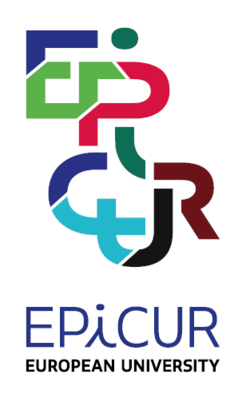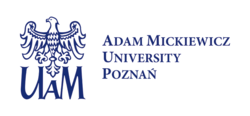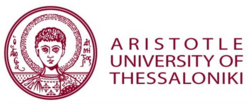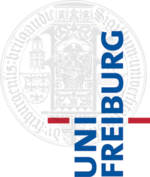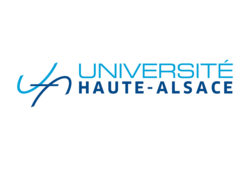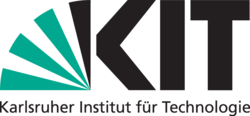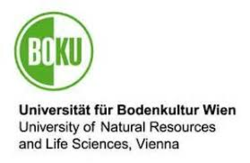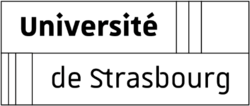EPICUR Alliance
The EPICUR Alliance supported by the University of Strasbourg wins the "European Universities" call for projects from the European Commission.
The European Partnership for Innovative Campus Unifying Regions (EPICUR) alliance has just secured the support of the European Commission for € 5 millions to become an attractive, innovative European university geared to the new generation of European citizens, to face the great societal challenges of the Europe of tomorrow. The EPICUR alliance is composed of 8 partners across Europe and led by the University of Strasbourg.
The European Partnership for Innovative Campus Unifying Regions (EPICUR) alliance is the winner of the call for European University pilot projects launched by the European Commission under the Erasmus+ programme and receives funding of EUR 5 million over 3 years. The EPICUR alliance is made up of 8 partners of higher education in Europe:
- Adam-Mickiewicz University of Poznań, Poland;
- University of Amsterdam, The Netherlands;
- Aristotle University of Thessaloniki, Greece;
- University of Freiburg, Germany;
- University of Haute-Alsace, France;
- Karlsruher Institute for Technology, Germany;
- University of Natural Resources and Life Sciences, Vienna, Austria;
- University of Strasbourg, France.
The EPICUR alliance is now committed to building a project deeply rooted in the values of a Europe of knowledge across borders.
"We are happy to have won this first step because we have been working for many months to create this European university alongside our partners," says Christelle Roy, project leader of the EPICUR alliance and vice president of strategies and developments from the University of Strasbourg. “We all share the same vision and ambition for the alliance: our goal is to build bridges between the academic communities of the eight partner universities, thus serving as intellectual hubs for research and innovation.”
"We are very proud of the support of the European Commission, which proves once again the ability of the University of Strasbourg to innovate in the face of the major challenges we face," says Michel Deneken, President of the University of Strasbourg. “We now hope to obtain the support of the French State, which has announced its wish to support, as part of the third programme of investments for the future (PIA3), the French universities that are committed to this great challenge which is European universities.”
Key axes and organisation of the EPICUR European University
The first three years of the project correspond to a pilot phase in the long-term process of creating the European University fully integrated with partner universities. The project consists of six action programmes, each led by a university member of the alliance:
- Project management, steering the alliance (Strasbourg);
- Promote multilingualism and inclusive governance (Amsterdam);
- Implement innovative methods of learning and teaching for the European citizens of tomorrow (Freiburg);
- Open the way to an interuniversity campus, using a student and staff-centered approach (Aristotle U-Thessaloniki);
- Strengthen and connect regions through a European university: development within and between European regions (KIT);
- Dissemination and sharing of good practices, sustainable cooperation (Strasbourg).
The EPICUR alliance places the teaching of "Liberal Arts and Sciences Education" at the centre of its project: one of the long-term objectives is the creation of a four-year "European bachelor of liberal arts and sciences", taught in English at several EPICUR universities.
The digital transformation of teaching formats and the development of student mobility are also priorities: the challenge is to develop a new educational approach based on the concept of inclusive excellence.
By 2025, the new generation should be able to master at least two foreign languages. Multilingualism and inclusion should consolidate European linguistic diversity while ensuring access for all to university studies.
From the links anchored between the partner institutions, the EPICUR alliance was conceived in a logic of increasing interconnection with the aim of linking in the short term, their respective networks existing in higher education and research.
Learn more about the 8 partners
Adam-Mickiewicz University, Poznań - Poland
The Adam Mickiewicz University in Poznań, named after a prominent Polish poet, is one of the three leading Polish universities and can draw on 100 years of history. More than 40,000 students and 1,300 doctoral students take courses and conduct research in 15 faculties in total.
University of Amsterdam – The Netherlands
The University of Amsterdam, founded in 1632, enjoys a reputation for world-class excellence in research and training. This general university currently ranks among the top 20 European universities. It is, like the University of Strasbourg and the University of Freiburg, a member of the LERU (League of European Research Universities). More than 30,000 students take courses in its seven faculties and more than 3,000 doctoral students are conducting research.
Aristotle University of Thessaloniki - Greece
With its 74,000 students, Aristotle University of Thessaloniki is the largest Greek university. Founded in 1925, this general university is one of the scientific centres of attraction in South East Europe. More than 4,000 doctoral students and more than 2,000 researchers conduct research in its ten faculties.
University of Freiburg - Germany
Founded in 1457, the Albert Ludwig University of Freiburg im Breisgau welcomes some 25,000 students. It is characterised by a mix of traditional disciplines and modern technology. Its comprehensive training offer extends from information technology to the humanities and social sciences, through to natural sciences and medicine.
University of Haute-Alsace - France
The University of Haute-Alsace has 8,500 students, enrolled in 170 courses from DUT level, Bachelor degree, engineering degree, master degree, up to PhD level, taught in 4 faculties, 2 IUTs and 2 engineering schools in Mulhouse and Colmar, France. It also has 14 research laboratories carrying out fundamental to applied research. As a highly innovative multidisciplinary university, it is recognised for the quality of its vocational education (including more than 35 apprenticeship programmes) and cross-border training (with more than 10 bi- or tri-national) programmes.
Karlsruhe Institute of Technology - Germany
Being „The Research University in the Helmholtz Association“, KIT creates and imparts knowledge for the society and the environment. It is the objective to make significant contributions to the global challenges in the fields of energy, mobility and information. For this, about 9,300 employees cooperate in a broad range of disciplines in natural sciences, engineering sciences, economics, and the humanities and social sciences. KIT prepares its 25,100 students for responsible tasks in society, industry, and science by offering research-based study programs. Innovation efforts at KIT build a bridge between important scientific findings and their application for the benefit of society, economic prosperity, and the preservation of our natural basis of life.
University of Natural Resources and Life Sciences, Vienna - Austria
The University of Natural Resources and Life Sciences Vienna is a centre for training and research on renewable resources and sustainability and includes the natural sciences, technology and economics. About 12 500 students take courses in its 15 departments.
University of Strasbourg - France
The University of Strasbourg welcomes 51,000 students, of which 20% are international students covering 150 nationalities. With its 35 components, 78 laboratories and research units, it is distinguished by the multidisciplinary and interdisciplinary nature of its training offer. It conducts a research of excellence provided by nearly 2,800 lecturer-researchers, including four active Nobel Prize winners.
Map of EPICUR Alliance
More information about EPICUR
- Browse EPICUR's website
- Get the latest news on Twitter and LinkedIn

